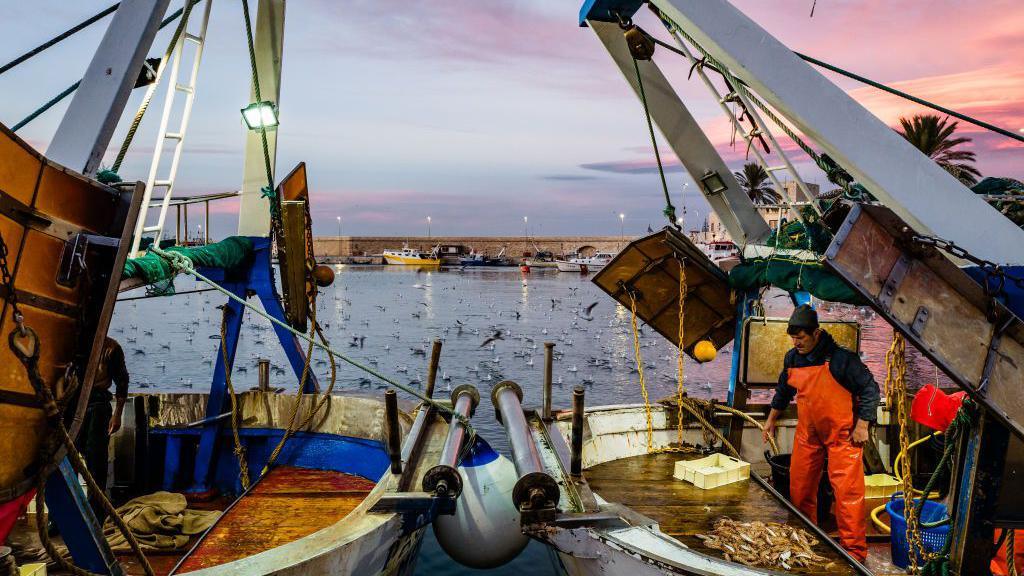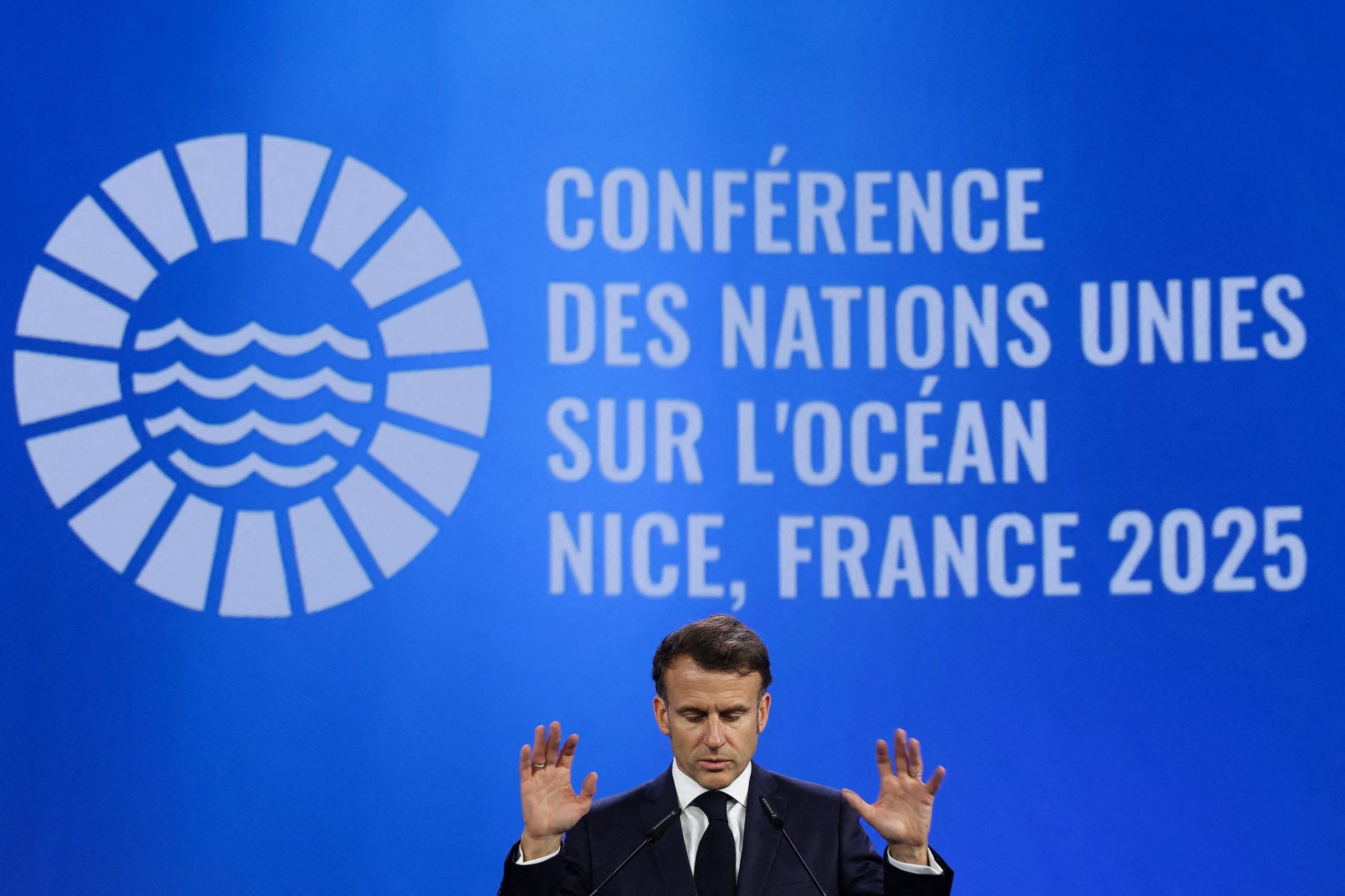UK proposes wider ban on destructive ocean bottom trawling

- Published
A ban on a "destructive" type of fishing that drags large nets along the seafloor could be extended across English waters, the government has said.
The proposal would expand the ban on bottom trawling from 18,000km2 to 48,000km2 (around 18,500 sq miles) of the UK's offshore areas that are already designated as protected. The plan is subject to a 12-week industry consultation.
A UN Ocean Conference begins in France today amid warnings from Sir David Attenborough that bottom trawling is destroying areas of the seabed and marine life.
A major goal of the conference is for more countries, including the UK, to ratify a treaty to put a third of international waters into protected areas by 2030.
Speaking before the summit, Sir David told Prince William he was "appalled" by the fishing method.
The naturalist's latest documentary Ocean With David Attenborough showed new footage of a bottom trawling net bulldozing through silt on the seafloor and scooping up species indiscriminately.
Last week, MPs on the Environmental Audit Committee renewed calls to ban bottom trawling, dredging and mining for aggregates on the seabed in what are known as Marine Protected Areas (MPAs).
The extension proposed by the government would cover 41 of England's 181 MPAs, and would protect rare marine animals and the delicate seabed they rely upon.
It says it has carried out detailed assessments into the harms caused to habitats and species.
Environment Secretary Steve Reed said "without urgent action our oceans will be irreversibly destroyed".
Mike Cohen, chief executive at the UK's National Federation of Fishermen's Organisations, called the decision "disappointing" and pushed back on the claims of environmental impact.
"Trawling does not damage most of the seabed. Trawls penetrate the sediment very little, if at all, in most areas and trawling has been carried out for well over 100 years," he said.
"Sensitive seabed features present today have survived more than a century of fishing, suggesting either that trawling does not happen in those places or that they are not sensitive to it," Mr Cohen added.
A 12-week consultation will run until 1 September and will seek the views of the marine and fishing industry.
Ariana Densham, head of oceans at Greenpeace UK, said the consultation was "ultimately a long-overdue completion of a process started by the previous government".
The Wildlife Trust said it hoped the extended ban would be put in place "rapidly".
It would be a "win-win for both nature and the climate," added the trust's director of policy and public affairs, Joan Edwards.
Pressure is also building for more countries to ratify the High Seas Treaty at the Ocean Conference in Nice.
The treaty was agreed by 193 countries two years ago to put 30% of international waters into protected areas.
The treaty will not come into force until it is ratified by 60 countries. It was announced at the opening of the conference that an additional 15 countries had ratified the treaty on Monday, but that only brings the figure to 47. The UK is among those countries that has yet to ratify.

President Macron opened the UN Oceans Conference calling for a moratorium on deep sea mining
President Macron, whose country is co-hosting the conference with Costa Rica, shared the news with governments in attendance at the conference - it was met with cheers from the room.
He and his counterpart President Rodrigo Chaves both also spoke of their concern about deep sea mining, and called for a moratorium.
"The ocean is not for sale. We're talking about a common shared good," President Macron said."I think it's madness to launch predatory economic action that will disrupt the deep seabed, disrupt biodiversity, destroy it."
He was speaking in reference to the decision made by President Trump in April to begin issuing permits to drill in the deep sea - in the hope that critical minerals could be retrieved.
This goes against a decade-long international negotiation to get global agreement on how any resources from the deep sea could be shared. China called the move, at the time, was a "violation" of international law.
More than 2,000 marine scientists have recommended that deep sea exploration is temporarily stopped until there is further research to understand the potential impacts on ecosystems.
Is bottom trawl fishing bad for the environment?
- Published4 February 2024
Shipwrecks 'sanctuary' for fish escaping trawlers
- Published23 November 2023

Sign up for our Future Earth newsletter to keep up with the latest climate and environment stories with the BBC's Justin Rowlatt. Outside the UK? Sign up to our international newsletter here.